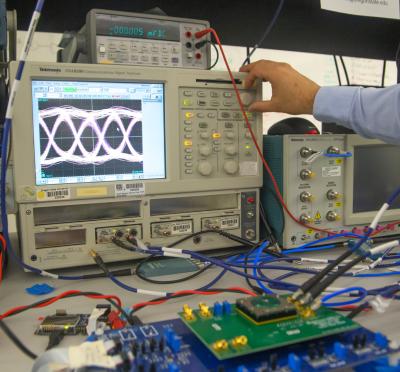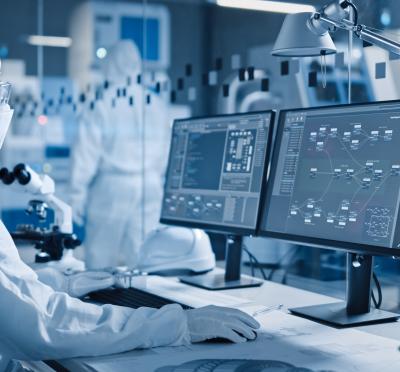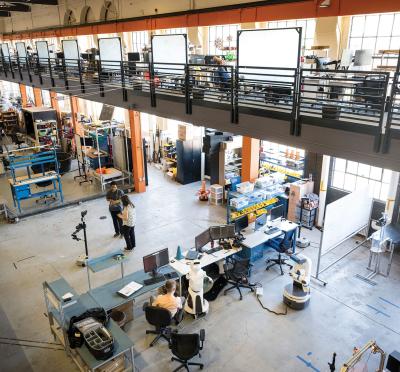Carlo Tiana is a man with a passion for vision — literally. A Vision Systems Fellow at Collins Aerospace (a subsidiary of Raytheon Technologies), Tiana has been developing and mentoring capstone projects for students in the College of Engineering at Oregon State University for several years.
Tiana’s division at Collins Aerospace develops transparent displays that are used for augmented reality in commercial and military aircraft in low-vision situations. The technology he works on assists countless aircraft in challenging situations.
“We provide the pilots images from vision systems when their eyes can’t see,” Tiana said. “So we let pilots see fires through smoke, runways through fog, and landing zones in sand storms.”
With the wildfires raging up and down the west coast today, projects like the ones from Tiana’s division are particularly applicable for students who are beginning to choose their capstone projects.
“Our projects are very relevant right now,” Tiana said. “In fact, I’m formulating this year’s capstone projects by making them extremely relevant to what’s in the news for students in Oregon today. Literally today.”
Tiana says coming up with capstone projects is easy because he always has plenty of ideas to try, and having a team of students experimenting with these ideas is advantageous for everyone.
Students get to explore kernels of new ideas and if projects are successful, Collins Aerospace takes these concepts back in-house for further development. This gives students experience on real-world projects with real-life impacts.
“We classify these vision systems as those that need to operate in situations that could potentially be catastrophic,” Tiana said. “If they fail, you don’t want a pilot to land in the wrong spot as a result of the system we built. These devices must never fail, or lives would be lost.”
Growing future talent is another reason Collins Aerospace chooses to partner with Oregon State on capstone projects. After several years of mentoring students, the company has hired several alumni.
While capstone projects can sometimes be beneficial for his company, Tiana is more interested in raising the bar for students.
“I’ve learned over the years that these projects generate useful things, but that’s probably a secondary aspect of it. The first thing is that the students get to look at engineering at a higher level. This isn’t just homework; students can impact the world,” Tiana said.
Once he provides a student team with clear expectations, he generally takes a hands-off approach. After that, Tiana provides guidance, challenges students to think about how the solutions they choose could impact the original goal, and then just lets them run with it.

problem at the Engineering Expo in 2016.
Recently, one student team worked on a project to detect airport runways in dense fog. The students needed to come up with a computing infrastructure that processed multiple camera feeds to create a single feed that contained the information a pilot needed to see, in real time.
But because of intellectual property concerns, Tiana wasn’t able to disclose actual camera data from Collins Aerospace, so the students were faced with having to find their own way to test solutions.
Using their ingenuity, the students built a model of the runway from scratch, complete with LED strips, artificial grass, and a piece of lumber. Placing cameras at the beginning of the model runway, the students generated their own camera data of a flight’s approach to a foggy airfield.
“It was really impressive,” Tiana said. “I still have that in my office and when people tell me they don’t know how to do something, I tell them they could always build their own airport.”
Tiana will mentor another team this year, and says the most successful teams are the ones that have fun with their projects, but also advises students to get started early and really dive in.
“It doesn’t work well if you’re just trying to check a box for the class,” he said. “Students who really get involved, own the project, work hard, and are engaged get a lot more out of a project than it might appear in the beginning.”
Tom Weller, the Michael and Judith Gaulke Chair in Electrical Engineering and Computer Science, says partnerships with companies like Collins Aerospace are valuable for everyone involved.
“Our school is very fortunate to have passionate supporters like Carlo, who can make such a difference in the capstone experience for our students,” Weller said. “And, it’s a two-way street, because working with our students can be a fulfilling experience for their mentors.”



